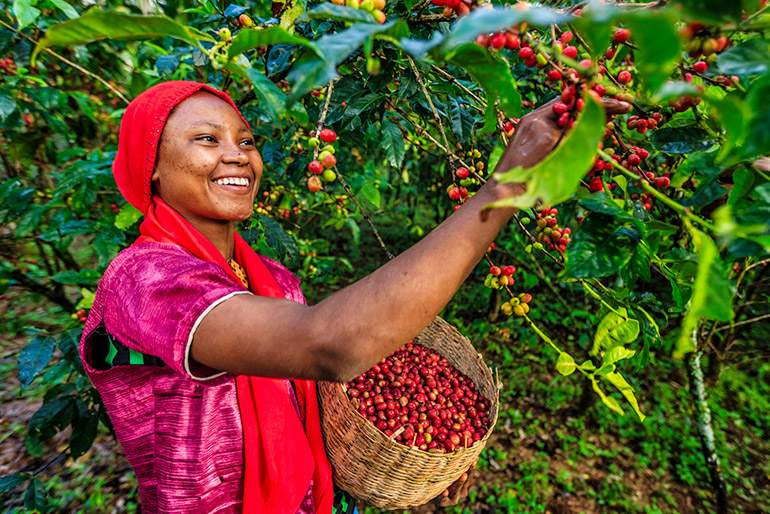Can sustainable finance help save the world?


Climate change is one of the world’s most daunting, and urgent, challenges. With sea levels rising, glaciers melting and an increase in extreme weather, we are already feeling its impact.
In order to build for tomorrow, action needs to be taken today and markets need to work together to meet the challenge. The hard work has already begun. The UN’s Sustainable Development Goals (SDGs) aim to protect the planet and end poverty by 2030, while the Paris Agreement, which has been signed by almost 200 countries, aims to reduce carbon emissions to net zero by 2050, to curb the worst effects of global warming.
And while these aims require co-ordinated efforts from world leaders, governments and big businesses they also need funding – especially from private investors.

The good news is that sustainable investment is growing. According to a Global Sustainable Investment Review published in 2019, investments now stand at $30.7 trillion – a rise of 34% from 2017.
However, we need to step on the gas, and fast. The World Economic Forum estimates that at least $2.5 trillion additional investment is needed every year to meet the SDGs.
Meanwhile, our Opportunity 2030 study, found that there was a USD10 trillion opportunity to invest in three of the more urgent SDGs focusing on infrastructure, clean energy and clean water.
So why is there a shortfall? While sustainable investment is growing, it is not flowing to SDG-related funds. One of the big problems is measurement, investors simply do not have the evidence necessary to show that investing in SDG-linked funds is worthwhile.
Perhaps, more worrying is that, according to The $50 Trillion Question, research we published earlier this year, 20% of some of the world largest investors aren’t even aware of the SDG’s existence.

While the SDGs need more funding, investment is even more important in emerging markets. These markets are crucial as they face the biggest risks from climate change and broader environmental, social and governance challenges.
However, sustainable investment in emerging markets is low. Our recent $50 Trillion Question report found that just 2 per cent, 3 per cent and 5 per cent of sustainable investment flows to the Middle East, Africa and South America, respectively.
This is even more baffling when you consider that, 88% of investors claimed that emerging markets have matched or outperformed developed markets in terms of returns over the past three years. There is a real multiplier effect at play, investors have the chance to make money and help combat climate change.
But what role can banks play in helping finance the world’s climate change goals? To help tackle the funding shortfall in emerging markets, it might be a matter of education. There is a perception that emerging markets are more of an investment risk but there is no evidence this is the case.
From a broader perspective, the time has never been better to accelerate our climate goals and start making serious strides. As well as helping improve data and disclosure for sustainable investments, financial institutions can create the innovative forms of finance – such as blended finance and sustainability bonds – to help capital flow to both developed and emerging markets.
We also must play our part in tackling climate change. We’ve committed to financing USD35 billion in cleantech and renewables between now and 2025. We also no longer fund new coal-fired power plants, and are helping our clients transition to earning less than 10% of their income from thermal coal by 2030.
There is a massive role for the financial services sector in helping the world solve one of its biggest problems. As a bank, we know we have only taken our first steps on what will be a long journey. However, action needs to be swift and decisive. After all, there has never been so much at stake.
Sustainable Finance
From financing innovations that build sustainable cities to powering millions of people through clean energy – see how we’re using money as a force for good.
Find out more